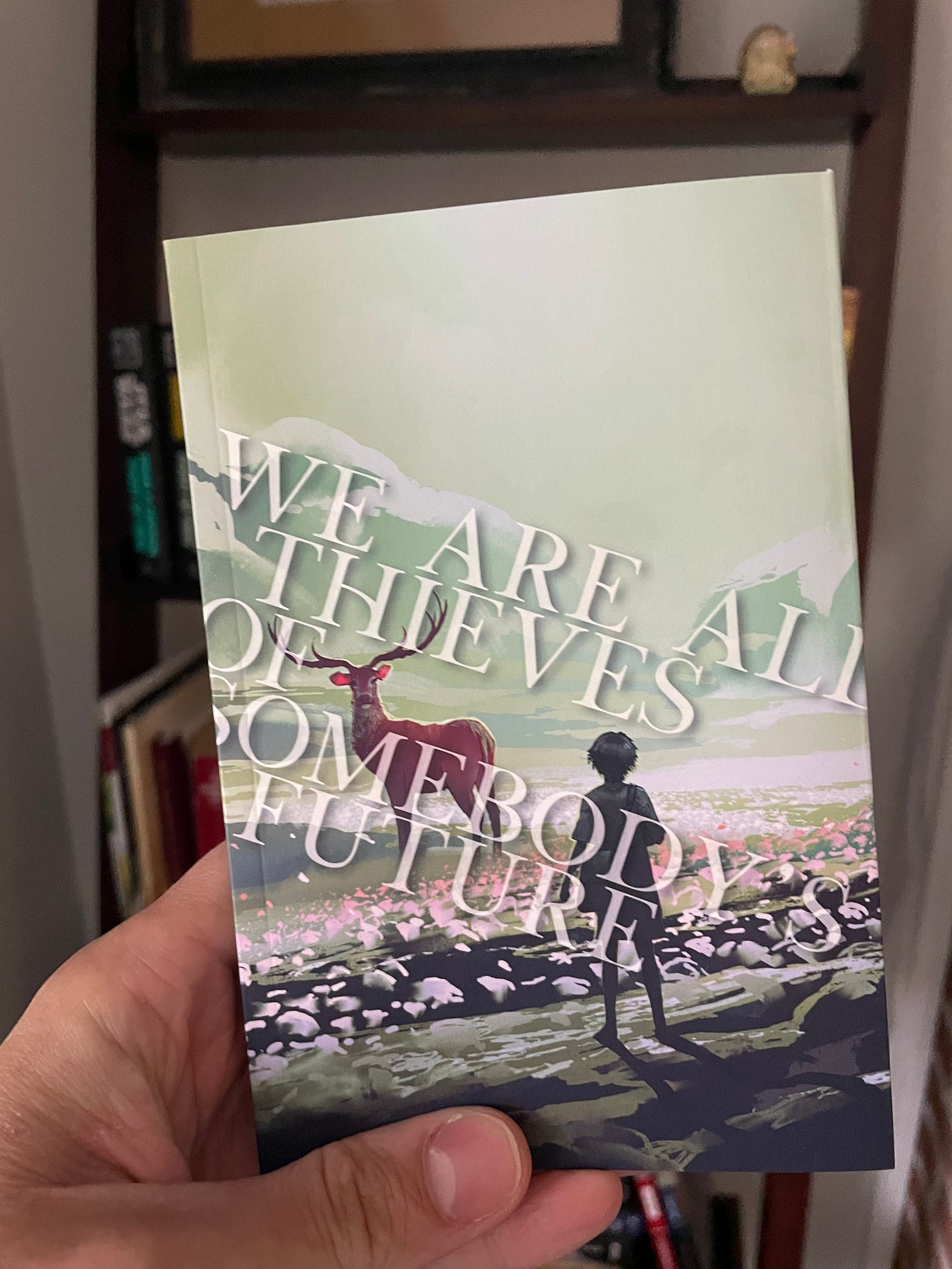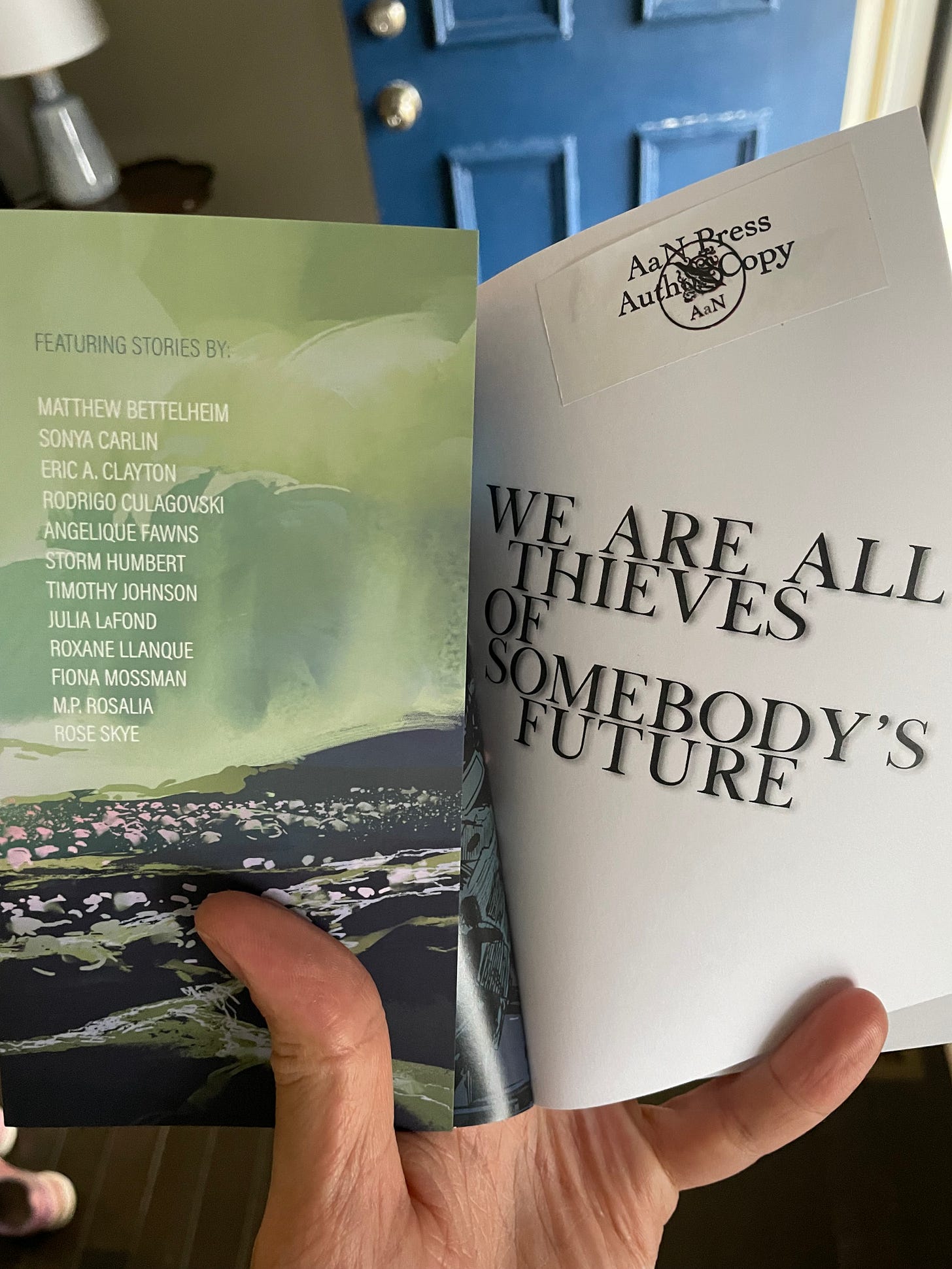The thing about Easter is we know how it’s going to end. We know Jesus comes back, pushes that stone away and goes fishing with his friends. We know he doesn’t stay dead.

“But I don’t want Jesus to die!” my youngest daughter squeals. And we smile and pat her on the head and assure her that it will all turn out just fine.
“He comes back,” we tell her. “It’ll be alright”—which is the easiest of theological explanations.
But I wonder: Do we know that Jesus returns because we’ve heard the story so many times, or do we know that the Christ must break through from the darkness and shadow and reemerge in our lives—in the lives of God’s own community—because that’s how the threads of story woven into our very being necessarily go?
I once heard someone critiquing the Christian story—religion in general, in fact—because it felt like just that: a story. If nothing else, our walk through Ignatian myth and narrative has shown how neatly the Christian story fits into the framework of countless other myths.
The response that was given to that comment went something along the line: Yes, of course the Christ story reflects what we know about patterns and plot points in myth. The flow of story is how we humans understand story to go. Why is it so hard to believe that God would work in and through that same kind of story, coursing through the deep story grooves worn into our very being? Why is it so hard to believe that God put that story framework in our very selves in the first place?
And so, of course Jesus comes back; of course God triumphs over death and necessarily returns. (My daughter, in fact, is not so surprised by this, though the theological insights necessary to seeing Christ in all people and all of creation takes a religious imagination that is not yet fully formed.)
“A hero ventures forth from the world of common day into a region of supernatural wonder; fabulous forces are there encountered and a decisive victory is won; the hero comes back from this mysterious adventure with the power to bestow boons on [friends and community].” Joseph Campbell again, page 23.
It’s easy enough to wrap this up with a neat and tidy bow: Jesus returns, and with what “boon?” Why, eternal life and the invitation to deep friendship with God!
But let’s not break so quickly. The story of Resurrection is the story of the Fourth Week of the Ignatian Spiritual Exercises. And what for what grace do we pray?
“Here it will be to ask for the grace to be glad and rejoice intensely because of the great joy and the glory of Christ our Lord.” (SE 221)
That sounds easy enough in the abstract, I think. Of course, we’re happy that God has won the day, that our friend Jesus is back in the mix. Huzzah! But what about in the lived reality of our own mythic journey? Sure—we want our own friends and family to rejoice and be glad when we return from a long trip with stories to share.
But here’s what I’ve been reflecting upon: Do we rejoice and show great joy when others come to this part of their own epic journey? Do we rush to see what they’ve learned, how they’ve grown, to shower them with support and love and praise? Or, are we quick to one-up, to talk over, to disregard and ignore? I know I often am.
We’re called to encounter Christ in one another. This Easter return, this renewed encounter—it happens all the time. Perhaps not with the theological heft of rising from the dead, body and spirit. But in quieter, more mundane moments: the return from a trip or the grocery store, those first moments of encounter in the early morning, a reunion of classmates or family and so on.
Do we rejoice in the renewed companionship of another? And are we patient and present enough to receive those proverbial “boons?” Because more often then not, the boon in question isn’t some little gift or a crisp twenty; the boon is often the transformation of the person before us, new insight and experience that will, in time, transform others.
It’s easy to be jealous or dismissive. Let’s instead be joyful and glad. Happy Easter.
This is the eleventh part of a limited series I’m calling The Ignatian Myth & Narrative Project. If you want to get caught up, read:
And another thing:
Jennifer Vosters wrote a beautiful review of my new book, “My Life with the Jedi: The Spirituality of Star Wars” for National Catholic Reporter. Give it a read and share it around!
Last week I mentioned briefly that I would be writing more on the death of my longtime friend and spiritual mentor, Fr. Jim Bowler, SJ. I did that—and you can read it here.
And finally, I was pretty pumped to come back from vacation and find my author copy of the new anthology, “We Are All Thieves of Somebody’s Future” waiting for me! You can get your own copy here.




Thank you for this reminder, Eric. We can all learn from each other's heroic journeys. Happy Easter!